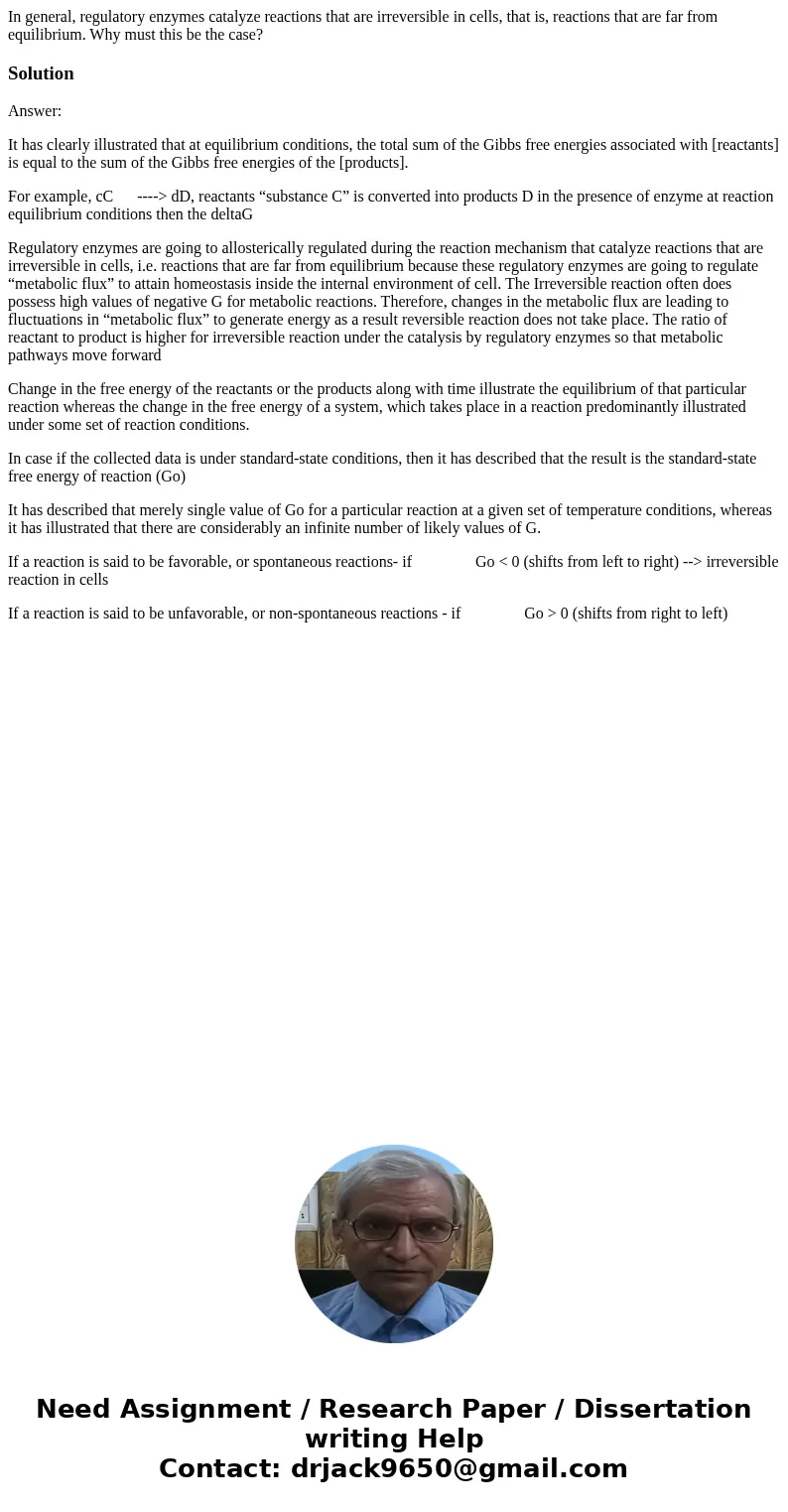In general regulatory enzymes catalyze reactions that are ir
In general, regulatory enzymes catalyze reactions that are irreversible in cells, that is, reactions that are far from equilibrium. Why must this be the case?
Solution
Answer:
It has clearly illustrated that at equilibrium conditions, the total sum of the Gibbs free energies associated with [reactants] is equal to the sum of the Gibbs free energies of the [products].
For example, cC ----> dD, reactants “substance C” is converted into products D in the presence of enzyme at reaction equilibrium conditions then the deltaG
Regulatory enzymes are going to allosterically regulated during the reaction mechanism that catalyze reactions that are irreversible in cells, i.e. reactions that are far from equilibrium because these regulatory enzymes are going to regulate “metabolic flux” to attain homeostasis inside the internal environment of cell. The Irreversible reaction often does possess high values of negative G for metabolic reactions. Therefore, changes in the metabolic flux are leading to fluctuations in “metabolic flux” to generate energy as a result reversible reaction does not take place. The ratio of reactant to product is higher for irreversible reaction under the catalysis by regulatory enzymes so that metabolic pathways move forward
Change in the free energy of the reactants or the products along with time illustrate the equilibrium of that particular reaction whereas the change in the free energy of a system, which takes place in a reaction predominantly illustrated under some set of reaction conditions.
In case if the collected data is under standard-state conditions, then it has described that the result is the standard-state free energy of reaction (Go)
It has described that merely single value of Go for a particular reaction at a given set of temperature conditions, whereas it has illustrated that there are considerably an infinite number of likely values of G.
If a reaction is said to be favorable, or spontaneous reactions- if Go < 0 (shifts from left to right) --> irreversible reaction in cells
If a reaction is said to be unfavorable, or non-spontaneous reactions - if Go > 0 (shifts from right to left)

 Homework Sourse
Homework Sourse